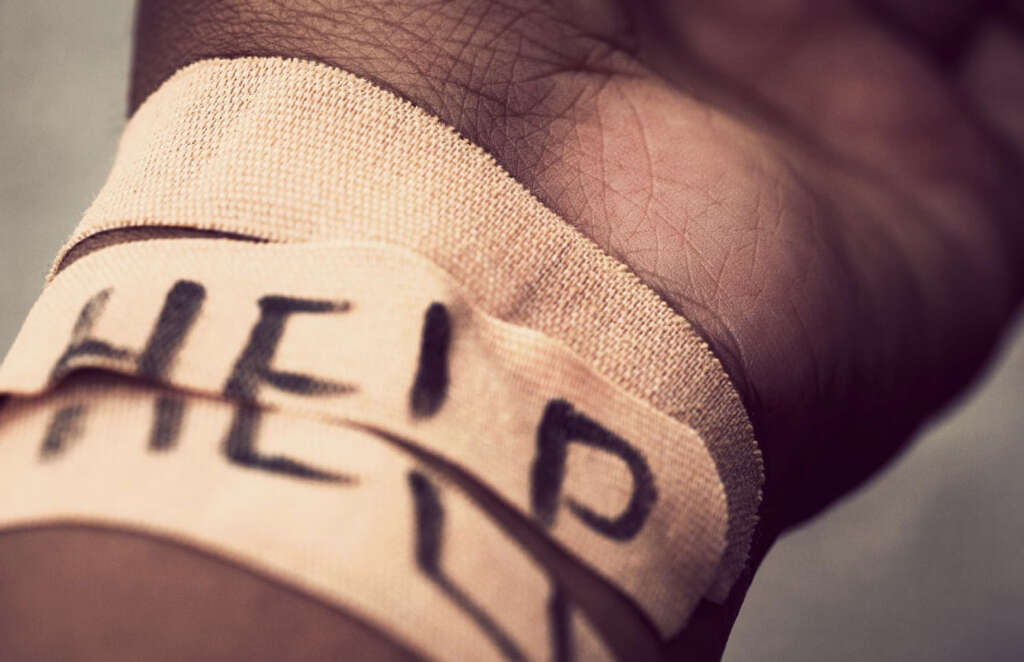What Is BPD?
Borderline personality disorder (BPD) is a mental illness that can change the way you think and feel about other people and yourself. Everything seems overwhelming and unstable, as if you are on a rollercoaster of emotions with ever-changing likes and dislikes. Small irritations can cause you to explode, and you may say hurtful things that make you feel guilty later. You push people away even though you want them to stay close. Your behavior can be impulsive, reckless, and dangerous.
It’s normal to feel anxious and even overreact in some situations. Having BPD, however, amplifies everything until everyday life is out of control. You may not know who you are anymore. With time and treatment, many people with BPD can get better and lead very satisfying lives. Here are 10 ways to help you identify BPD so that you can move forward to get the help you need.

1. Extreme Mood Swings
If you have BPD, your emotions are unstable and your moods swing widely. Things that don’t seem to impact other people can send you reeling. Although these moods may last from a few hours to a day, usually they change quite quickly. Fierce and intense, they feel like they overwhelm every part of you.
One moment you may be on top of the world, elated, bursting with happiness. Then, before you know what is happening, you may plunge into despair and depression. The unpredictable nature of these extreme emotions challenges your everyday life and your relationships with those around you.

2. Explosive Anger
In a person with BPD, intense and explosive anger can flare up unexpectedly and unprovoked. You may lose your temper frequently, lash out with sarcasm, or engage in physical fights. Once your fuse is lit, you may not be able to control yourself at all and may be completely consumed by rage.
Your explosive anger causes you to throw things, break nearby objects, yell and curse, or even engage in physical fights. Extreme bitterness may be evident in the words you hurl like weapons. Even those close to you are not exempt from your uncontrollable anger.

3. Feelings of Emptiness
Ongoing feelings of emptiness are common in those with BPD. It can seem as if there is a void inside of you that nothing can fill, a hollowness in the very core of your being. Such a void is uncomfortable and unsettling. You may try to fill the hole with things or destructive behaviors.
Sometimes people try to fill the void with food, alcohol, drugs, or sex. Nothing is ever enough, however, and a temporary feeling of satisfaction soon vanishes. The chronic feeling of emptiness never really goes away and can drag you progressively downward.

4. Self-Injury
Deliberate self-harm, such as burning or cutting, is a common behavior in people with BPD. Other kinds of self-injury could include punching or hitting, poisoning with medications or toxic chemicals, deliberately starving, or exercising excessively. Often these actions may be in response to a fear of rejection or separation.
Excessively low moods or self-blame may also trigger thoughts of suicide. Making plans or threats, intending to act on those thoughts, or even going through with an attempt are other extreme expressions of self-harm. Triggers to such destructive behaviors are unexpected and unmanageable.

5. Paranoia
People with BPD often struggle with periods of stress-related paranoia. You may become suspicious of those around you, questioning their motives. Even though there is no proof, you may feel threatened, as if someone is watching you or acting against you. Such thoughts can be troubling or frightening.
Even those closest to you may seem untrustworthy. You may believe that they are criticizing you or taking advantage of you. These false thoughts impair your ability to reason and assign meaning to things. The unrelenting mistrust of others causes you to be constantly defensive.

6. Fear of Abandonment
No one wants to be alone in life, but to someone who suffers from BPD, the thought of being abandoned is terrifying. Even a loved one arriving home a few minutes late can trigger an extreme reaction. You may start a fight, lash out physically, or begin tracking his or her movements.
Whether real or imagined, the idea that you are being rejected can cause intense fear, and prompt frantic efforts to keep the other person close. Your extreme actions, meant to protect yourself from abandonment, often push people away from you instead. You cause the very thing you fear to become a reality.

7. Risky Behavior
Impulsive and risky behavior may be evident, especially when you are upset. You may engage in alcohol binges, drug abuse, risky sex, shoplifting, or reckless driving. Although these sensation-seeking behaviors may make you feel better temporarily, your mood and emotions soon plummet again.
You may go on spending sprees that put you into debt or gamble away money that you can’t afford to lose. A person with BPD may even sabotage themselves by abruptly ending a desired relationship or quitting a good job. These self-destructive behaviors always hurt you and those you love in the long run.

8. Unstable Relationships
People with BPD can swing quickly between idealizing someone and viewing them as cruel and unreasonable. Because of these rapid changes, relationships tend to be short and intense. Falling in love happens quickly, but so does disillusionment. You put someone on a pedestal just to knock him or her off again moments later.
Even your relationships with family and friends are either perfect or horrible, always at the extremes and never in the middle. Your emotional instability, never knowing what to expect from you, causes those you around you to retreat and makes long-term relationships impossible to maintain.

9. Shifting Sense of Self
Having BPD means that your self-image typically changes frequently. This can include shifting values, opinions, and goals. You don’t have a clear sense of who you are, what you want, or where you are going in life. You may view yourself as hateful and evil, and then feel righteous and justified in whatever you do.
Because of this variability, your friends don’t last long, and neither do your jobs. You may frequently change religions or even sexual identity. Your unpredictable sense of self makes you feel totally lost and can even cause you to believe that you don’t exist at all.

10. Inappropriate Response to Life
We live in stressful times filled with a lot of uncertainty, and everyone reacts to life in different ways. Depending upon the situation, those reactions can be extreme in their expression of joy or despair. With BPD, however, your responses and emotions are inappropriate to the situation.
Borderline personality disorder usually begins in early adulthood. All of us need love and lasting relationships. If your thoughts and behaviors leave you lost and alone with unstable connections to those around you, a professional evaluation could put you on the track toward a fulfilling life.










